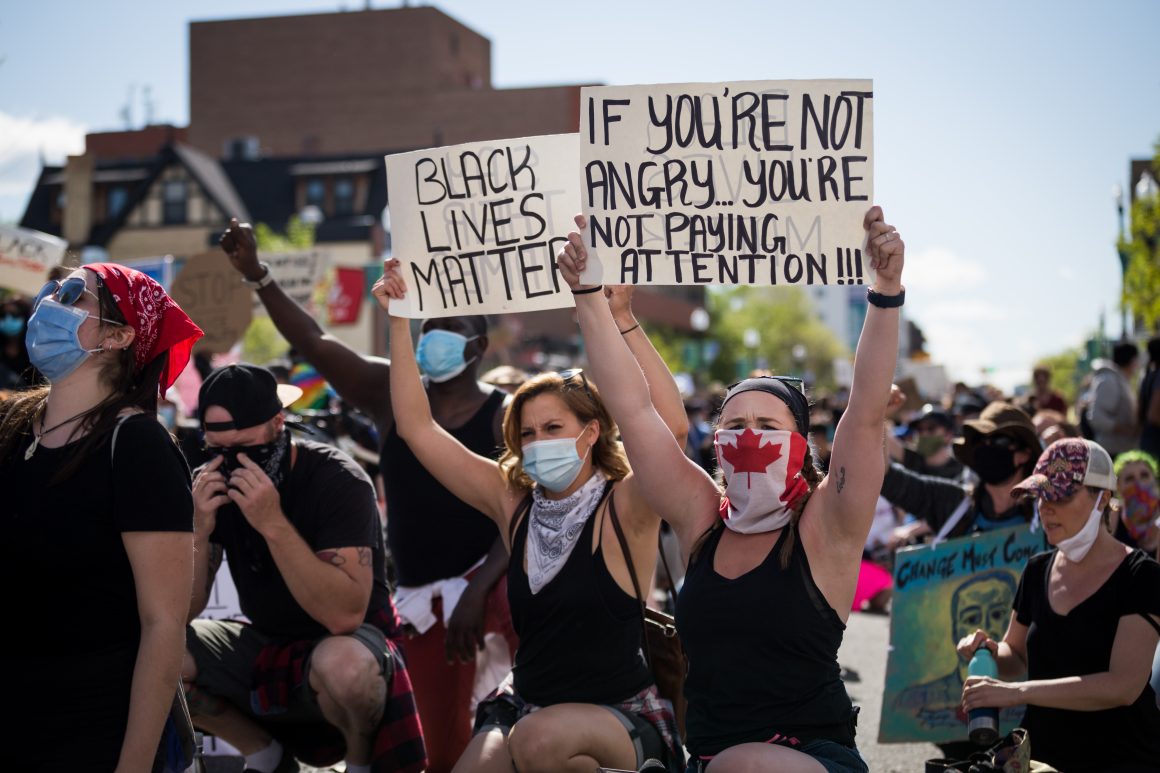
What the Black Lives Matter Movement means for Canadians
By Ishita Moghe, July 8 2020—
When comparing ourselves to our southern neighbours, we often fall into the trap of complacence or ignorance when it comes to racial injustice in our own country. The issue is that racism in Canada often does not look exactly like racism in America. So, we think we’re different. We think we’re better.
Racism in Canada may be quieter, more discrete and maybe even less violent — so much so that at times we might even start to believe that Canada doesn’t really have a race problem — that means we’re not really racist, right?
In reality, Canadian prejudice seems to hide behind politeness, credentials, or using the ‘right’ vocabulary. We saw a chilling example of this in the Central Park incident in late May, when a white woman called the police on a Black man who had simply asked for her to leash her dog in an area meant for bird-watching, which is a park rule. Her frequent, fervent use of the words ‘African-American’ as the primary descriptor while making false accusations to the police seemed indicative of a deep-rooted and insidious type of racism — a racism that tends to be more prevalent in educated, well-connected, ‘normal’ people — including Canadians. Even in her apology, the woman in this video insisted she was not racist. Is there another reason that she felt the need to proclaim that it was an African-American man threatening her? Was she not purposefully leveraging her innate status as a white woman to harm a Black man?
This incident exemplifies the brand of clandestine, ‘not real racism’ racism that is still very present in Canada. It has a tangible impact on the lives of visible minorities, from job and educational opportunities to hate crimes. Statistics Canada has reported that visible minorities deal with lower average income, higher unemployment rates and significantly more police-reported hate crimes. These issues are disproportionately experienced by lack and Indigenous Canadians. 94 per cent of Black youth in Canada reported the desire to obtain a university degree, but only 60 per cent believed they actually could. Of the rest of the population, 79 per cent, believed they could obtain a university degree if they wanted to.
Many Canadians truly believe that racism is not a significant problem in our country. In the Race Relations in Canada 2019 Survey, 84 per cent of white respondents held an optimistic view on the state of race relation in their communities. A noticeably smaller proportion of minorities agreed with this sentiment: 77 per cent of Black respondents and 69 per cent of Indigenous respondents shared the positive view. It is not surprising that the groups most marginalized in Canadian society feel less hopeful about being treated equally to their white counterparts.
We might say ‘African-American’ and ‘Indigenous’ instead of the slurs we see people use in the never-ending stream of viral videos. We might have minority neighbours that we are always polite with. We might believe that the Canadian community is fully accepting of our multicultural roots. Although we are a largely welcoming community, the data speaks for itself. Minority groups are consistently in lower socioeconomic conditions and deal with more hate crime, this is amplified for Indigenous and Black Canadians.
I hope that those of us who are inherently privileged through race, socioeconomic status or education take this opportunity to introspect and learn about the racial prejudices inside of us and our communities. We may forget it sometimes when we look at cases of glaring racism in other countries, but even in Canada we have a long way to go. We cannot stop until we are all equal.
This article is part of our Opinions section and does not necessarily reflect the views of the Gauntlet’s editorial board.
